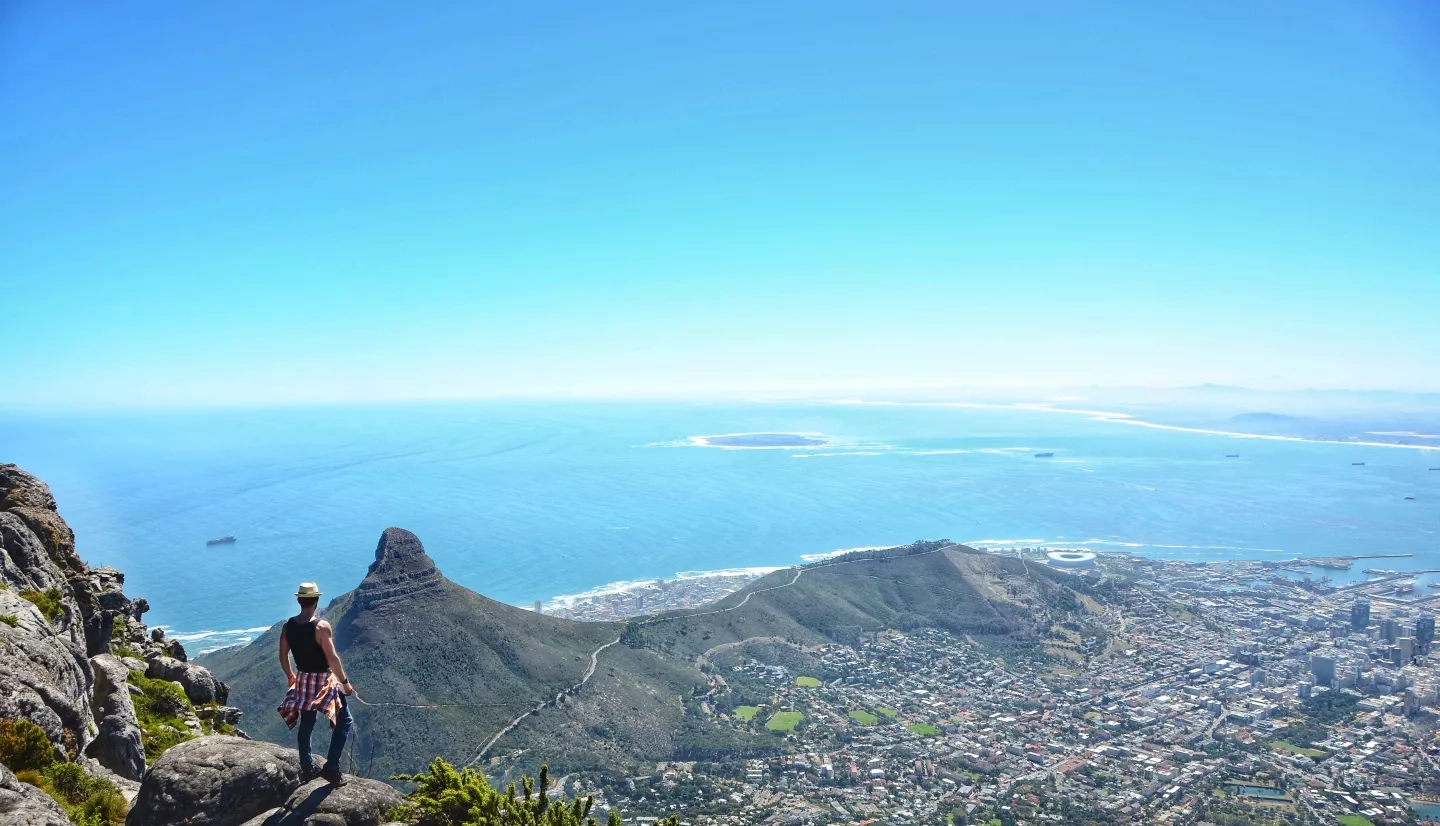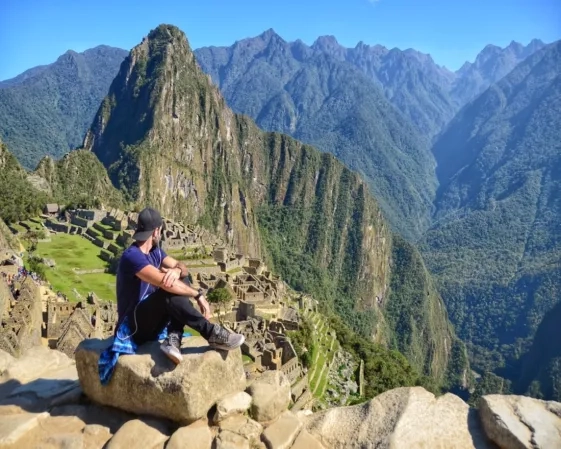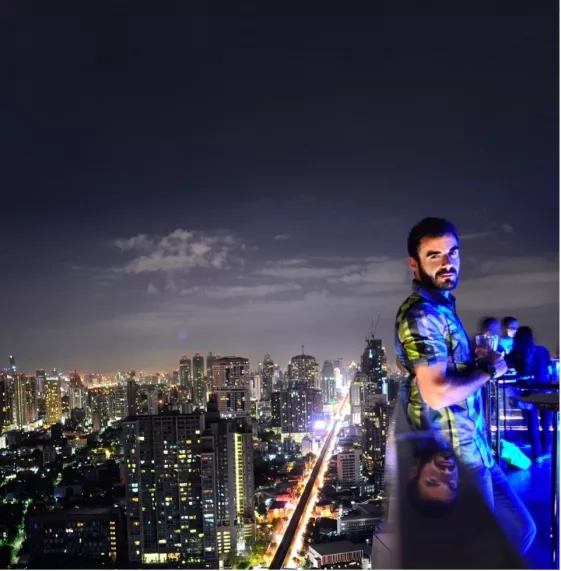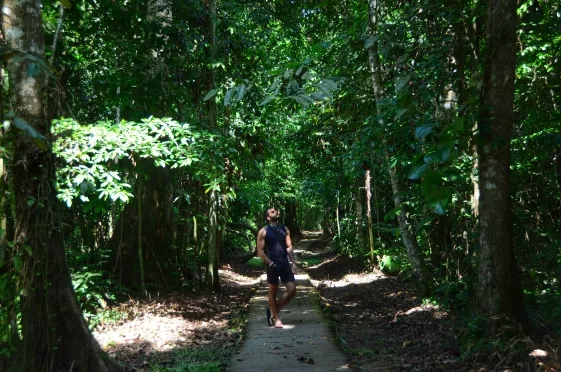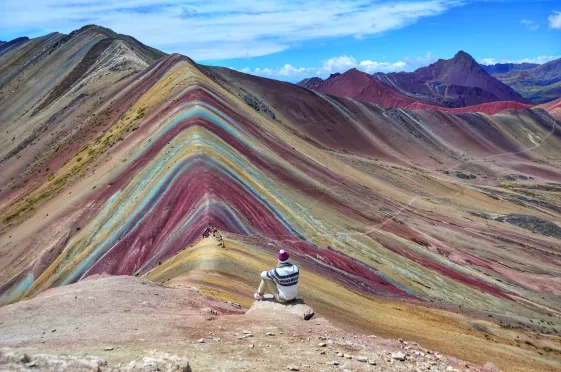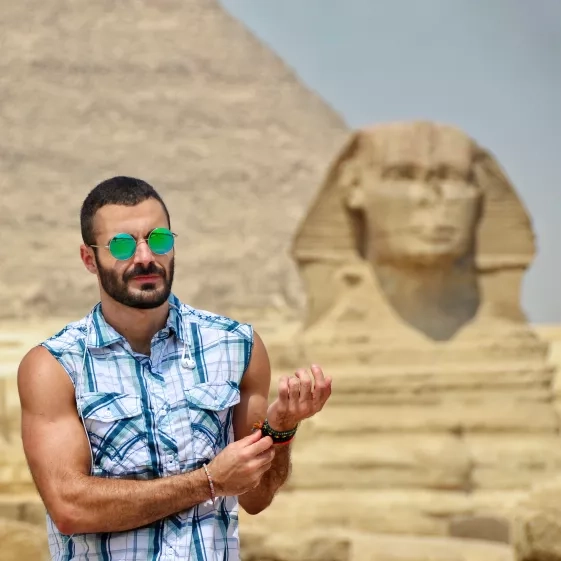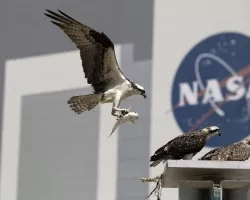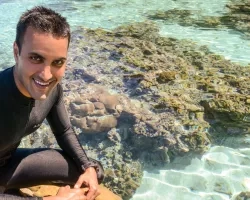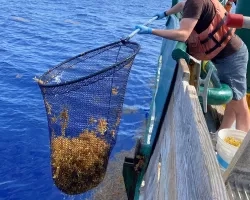A world traveler, forest engineer, research scientist and new associate program manager in the Ecological Forecasting program area, Celio Sousa, brings a fresh perspective and strong passion for Earth observations and remote sensing to the NASA Applied Sciences team.
Sousa grew up in Brazil and as a kid, enjoyed geography and cartography which led him to pursue a degree in forest engineering from Universidade Federal de Lavras (UFLA). After graduating from UFLA, Sousa earned a Ph.D. in Forest Ecosystems and Society from Oregon State University and landed a job a NASA's Goddard Space Flight Center in Greenbelt, Maryland.
Here’s 5 questions we put to Sousa.
- HOW WOULD YOU DESCRIBE THE PURPOSE OF YOUR JOB TO SOMEONE FROM ANOTHER PLANET?
Assuming we have intelligent life on another planet, I would first describe to them my associate research scientist role at NASA Goddard Space Flight Center in which I help people understand what nature has to offer in terms of services and the economic value they provide. This role is conjoined temporarily with my new position of associate program manager in the Ecological Forecasting program area of NASA Applied Sciences.
As a program manager, I will assist and guide the researchers and other scientists on their journey of producing tools and applications to help us conserve our natural resources. Although this is a short detail, I am most looking forward to collaborating with end users to encourage them to use NASA’s Earth observation data to help decision-making in supporting policy and measurement around the world.
- WHAT ARE YOU MOST PASSIONATE ABOUT WITH REGARDS TO YOUR WORK AT NASA?
It doesn’t get any better than NASA. NASA is leading the way in Earth observations data and remote sensing technology and I’m fortunate to be working at the forefront of it all. I’m most passionate about the application part of my work and am lucky to be a part of a project that has a huge application component associated with it.
It’s extremely gratifying to see something tangible that you’ve produced being used to help entire countries account for their natural resources and develop policies for conservation. From producing an ecosystem extent map that was adopted officially by the government of Liberia as their basis for accounting for ecosystem services, to working on a land cover map that has been used to help establish 17 new protected areas in Guinea, seeing the results of my research being used in real life for better decision making is very rewarding.
- WHERE IS YOUR FAVORITE PLACE ON EARTH?
How can I choose just one? I’ve traveled to 50 countries on all the continents on the planet and my day-to-day job is to look at images of the entire planet which allows me to constantly see different places and look at the surface of the Earth in a very fine resolution and then at a broad scale.
I’ve truly enjoyed all the places I’ve traveled to because they teach me new values, provide me with life-changing experiences and open my eyes to the beauty of our Earth. If I must pick my favorite place, I’d choose somewhere with pristine nature all around, a place where I can enjoy a little bit of solitude and silence and wherever I can be 100% myself which is probably an island.
- WHAT INSPIRED YOU TO LEARN ANOTHER LANGUAGE?
Growing up in Brazil, I spoke Portuguese and was always obsessed with the way English sounded. Living in a country that was largely influenced by the United States through music, movies, video games and other forms of media, I remember being fascinated with how different English sounded than Portuguese. At a young age, I began to teach myself English because I wanted to sound like the people who I heard on TV.
I am now fluent in English and know a little bit of French and Spanish. Later in life, I realized that speaking English fluently – especially as a Brazilian – was one of my biggest selling points when pursuing higher education abroad. Being bilingual has helped me accomplish my educational goals and has played an important part in making me the scientist I am today.
- WHAT ADVICE DO YOU HAVE FOR YOUNG SCIENTISTS?
Become a strong communicator, expand your knowledge of graphic design, and read daily. There is a romanticized idea that if you’re in science you will spend the rest of your days doing cool experiments, mixing things in a lab, looking under microscopes and making exciting discoveries constantly, and although this is what some of my days may look like, there is also a lot of bureaucracy and admin work in science.
To be successful in the field, work hard at developing the skills to become the best at all the sides of science and know how to navigate nuances. Start now by strengthening your writing skills, learning more about visual communication, and mastering administrative tasks. I never imagined that I would be working at NASA but am thankful that my love of studying satellite imagery from space and mapping vegetation of large areas over the globe led me to a fulfilling career at NASA.
